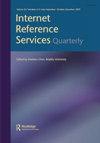面向未来的技能:非洲大学生使用人工智能的信息素养和图书馆员的角色
Q3 Social Sciences
引用次数: 0
摘要
摘要图书馆在培养学生在学习中茁壮成长和毕业后创新方面的作用越来越重要。通过数字渠道更容易获取信息,而且信息日益丰富。生成式人工智能(AI)增加了这一现实,并增加了对数字驱动的信息素养技能的需求。本文旨在通过对信息创建、检索和利用的数字化进行探讨,以指导图书馆员的工作。它建议对学生进行数字和信息素养的培训。图书馆员被要求为他们的大学提供明确的指导方针,以指导生成式人工智能的使用。数字信息源和生成人工智能的含义讨论了图书馆员的角色在上下文中。信息素养和数字素养是相互关联的。高校图书馆应将数字主题纳入信息素养培训。信息素养应该在大学教育的开始和学生开始论文写作之前进行培训。大学图书馆应该为学生使用生成式人工智能工具提出指导方针。关键词:非洲大学AI bardaichatgpt数字素养生成式人工智能高等教育信息素养大学图书馆致谢作者感谢德国慕尼黑汉斯·塞德尔基金会在德国接待他,并允许他就AI在大学中的应用这一主题发表演讲。作者进一步感谢维尔茨堡大学媒体心理学主席讨论了人工智能的话题,并就媒体心理学家如何为道德使用做出贡献提供了见解。披露声明作者未报告潜在的利益冲突。本文章由计算机程序翻译,如有差异,请以英文原文为准。
Skilled for the Future: Information Literacy for AI Use by University Students in Africa and the Role of Librarians
AbstractThe role of libraries in preparing students to thrive during their studies and innovate after university is growing in importance. Information is more easily accessible through digital channels and is increasingly abundant. Generative Artificial intelligence (AI) adds to this reality and increases the need for digitally driven information literacy skills. This paper aims to guide librarians by discussing the digitalization of information creation, retrieval, and use. It recommends the training of both digital and information literacy for students. Librarians are called upon to provide clear guidelines to their universities to steer the use of generative AI. The implications of digital information sources and generative AI are discussed with the role of librarians in context.HIGHLIGHTSInformation literacy and digital literacy are related.Academic libraries should include digital topics in information literacy training.Information literacy should be trained at the start of university education and before students begin dissertation writing.University libraries should propose guidelines for the use of generative artificial intelligence tools by students.Keywords: African universitiesAIBardAIChatGPTdigital literacygenerative artificial intelligencehigher educationinformation literacyuniversity libraries AcknowledgementsThe author thanks the Hanns Seidel Foundation in Munich, Germany for hosting him in Germany and allowing him to present on the topic of AI use in universities. The author further thanks the Chair of Media Psychology of the University of Wuerzburg for discussing the topic of AI and providing insights into how media psychologists can contribute to ethical use.Disclosure statementNo potential conflict of interest was reported by the author(s).
求助全文
通过发布文献求助,成功后即可免费获取论文全文。
去求助
来源期刊

Internet Reference Services Quarterly
Social Sciences-Library and Information Sciences
CiteScore
2.40
自引率
0.00%
发文量
13
期刊介绍:
Internet Reference Services Quarterly tackles the tough job of keeping librarians up to date with the latest developments in Internet referencing and librarianship. This peer-reviewed quarterly journal is designed to function as a comprehensive information source librarians can turn to and count on for keeping up-to-date on emerging technological innovations, while emphasizing theoretical, research, and practical applications of Internet-related information services, sources, and resources. Librarians from any size or type of library in any discipline get the knowledge needed on how to best improve service through one of the most powerful reference tools available on the Internet.
 求助内容:
求助内容: 应助结果提醒方式:
应助结果提醒方式:


